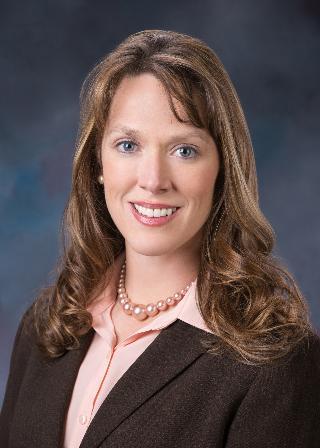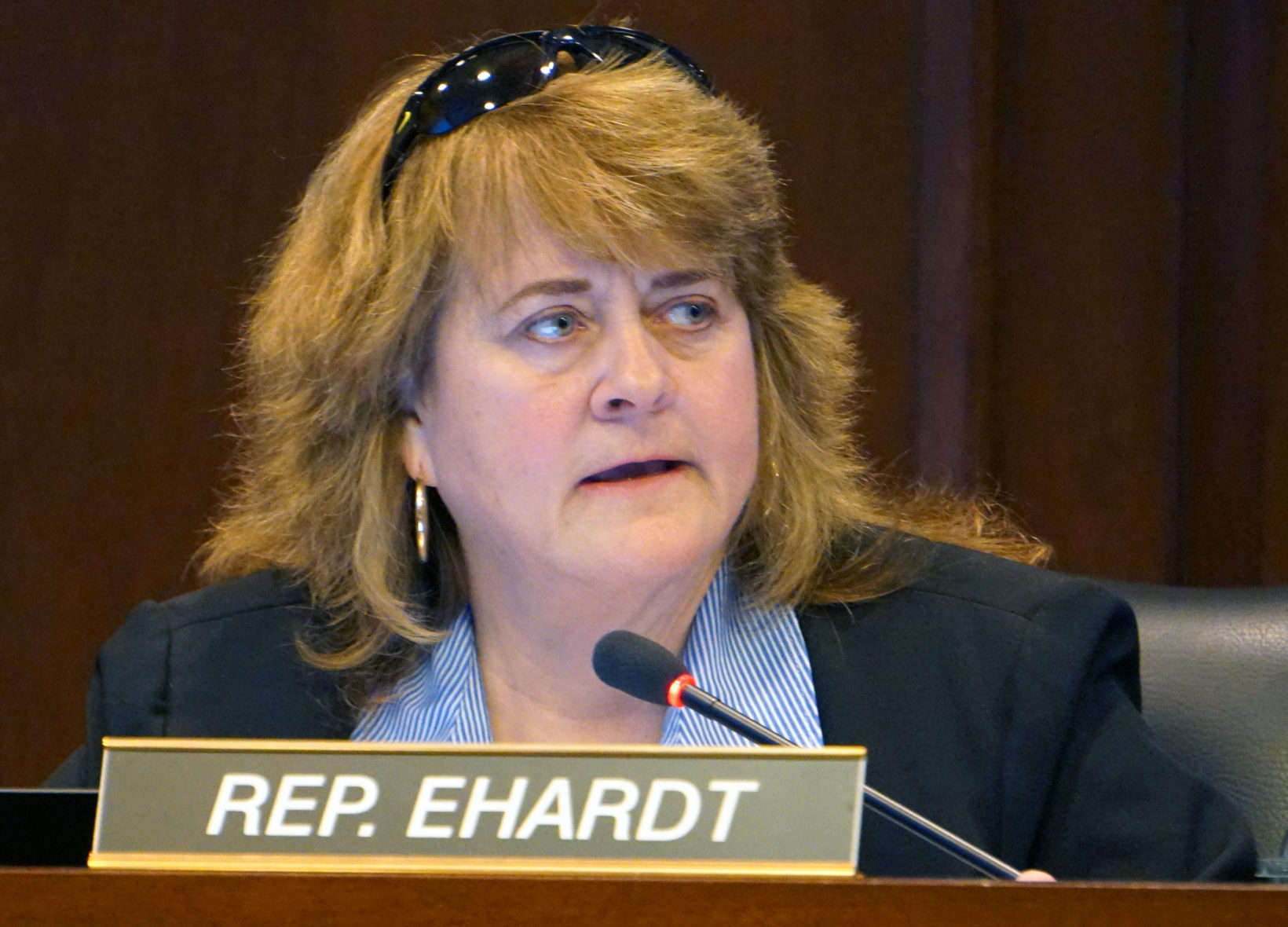Schools and day cares would be required to tell parents that they can opt their children out of immunizations, under a rewritten bill introduced Monday.

Rep. Priscilla Giddings, R-White Bird, wants the opt-out information provided at the same time parents receive information about state immunization guidelines.
The rewrite appears to be an attempt to head off some initial concerns about the bill: the cost of the notifications.
“Since notification would occur at the same time and in the same manner as current notifications, any additional cost should be minuscule,” the bill’s fiscal note reads. “Legislative Services reported that specific costs to schools would be undeterminable.”
Parents can opt out of state immunization guidelines by filling out minimal paperwork — and Idaho has some of the nation’s highest immunization opt-out rates.
The House Health and Welfare Committee voted to print Giddings’ bill, which means it could come back to the panel for a full hearing.
Bonneville, DHW respond to sex-ed bill
An Eastern Idaho school district says a local lawmaker didn’t do her homework before introducing a bill criticizing sex education in schools, the Idaho Falls Post Register reports.

Rep. Barbara Ehardt, R-Idaho Falls, wants to allow parents to opt in to sex education classes. The House Education Committee introduced her bill Friday. Under state law, bills are supposed to be publicly available after introduction; however, a version of Ehardt’s bill is still not available online late Monday morning.
In arguing for her bill, Ehardt cites a permission form and graphic materials distributed by the Bonneville School District. In a subsequent interview, Bonneville officials said the materials were not widely distributed, but were instead “an attempt to address inappropriate behavior by a handful of special education students,” the Post Register reported.
“Frankly speaking, I’m certainly disappointed that (Ehardt) did not reach out to us to try and receive any kind of clarifying information about the situation,” Assistant Superintendent Scott Woolstenhulme told the Post Register.
Meanwhile, the Department of Health and Welfare tried to clarify the intent of its “Reducing the Risk” program, which Ehardt also criticized.
“It emphasizes abstinence as the safest choice and encourages protection for those choosing to have sex to prevent pregnancy and sexually transmitted infections, including (AIDS),” Health and Welfare spokeswoman Niki Forbing-Orr wrote in an email to the Post Register.
Lightning round in Senate Education
The Senate Education Committee moved quickly Monday to print eight bills — with no discussion, and in less time than it took Chairman Dean Mortimer to kick off the meeting with his traditional weekly poetry reading.
Senate Education was on the clock, because Monday was the deadline for the committee to print new bills. Some Senate committees can introduce new bills through the end of the session, but Education isn’t one of them.
And introductory hearings are just that — they are only the first step in the legislative process. The next step for any of these bills would probably be a full Senate Education hearing.
Snapshots of three of the new bills:
- Advocates want to ease a cap on the state dollars charter schools receive to help pay for facilities. The 2013 Legislature passed the charter facilities law. Payments have already increased significantly, from $2 million in 2013-14 to a projected $8.8 million in 2019-20.
- Charter school advocates drafted a separate bill to create a fund in the state treasury to back up bond issues. The objective is to help charter schools secure lower interest rates on building projects.
- Another bill would make it easier for students to use their $4,125 advanced opportunities allowance to take career-technical classes that lead to industry certifications.
Levy disclosure bill heads to House floor
With little discussion, the House Revenue and Taxation Committee approved a bill that would require school districts and other local governments to tell voters the cost of a property tax levy.
If House Bill 103 passes, local governments would have to disclose the cost of a levy, based on $100,000 of taxable property. The language would have to appear on the ballot.
The 2018 Legislature passed a similar bill, addressing bond issues.
Sponsored by Rep. Doug Ricks, R-Rexburg, HB 103 now heads to the House floor for a vote.
Math requirements fight heats up
The House Education Committee is pushing back against a requirement that high school seniors take math classes, reviving a 2018 debate in the process.
House Education voted to reject sections of an administrative rule that requires students to take two of their required six credits of math during senior year.
The committee also rejected language relating to senior projects, but stopped short of killing off the senior project.
Several legislators said they wanted to retain the required six math credits, but also want to allow students to take those courses at any point in high school.
Tracie Bent, the State Board of Education’s chief planning and policy officer, said the proposed math course rule is designed to promote high standards and to satisfy the Idaho Constitution’s requirement for a “general, uniform and thorough” public school system.
Bent also pointed out that postsecondary math remediation rates are lower for students who complete math courses in their senior year.
The fight appears to represent a disagreement over math as much as it does a fight over checks and balances. Last year, the Legislature passed Senate Bill 1266 with near unanimous support. That bill did away with the senior math requirement, but only within a section of state law dealing with gifted students.
“They should have known exactly what we were talking about and what we meant,” said Rep. Judy Boyle, R-Midvale. “Unless we as a Legislature guard jealously what our legislative duties and powers are, then the whole system falls apart.”
Sen. Steven Thayn, the Emmett Republican who sponsored SB 1266, told a House Education rules subcommittee last month that he has no problem with the rule remaining on the books, and knew his bill would not repeal the math requirement. Thayn said he only brought the bill as a conversation starter.
Monday’s debate was messy and confusing. Legislators confused the State Board with the State Department of Education, called on the wrong lawmaker to summarize a subcommittee report, could not remember what specific action the subcommittee recommended and nearly misstated a motion to reject sections of the rule.
Rep. Steve Berch, D-Boise, tried unsuccessfully to delay a vote until clarity was restored.
“I’m not hearing a compelling argument to reject either of those rules and, also, am hearing a fair amount of confusion about what is going on,” Berch said.
In the end, the committee rejected the senior math requirement on a voice vote.
Senate Education already voted to approve the senior math rule in its entirety. Under the sometimes confusing rulemaking process, both legislative chambers must reject a rule in order to kill it. Since the two chambers are at odds, the Senate’s earlier action could be enough to approve it. However, if the Senate decides to hold a hearing on House Education’s recommendation, that could set up a late-session showdown.
Idaho Education News reporter Clark Corbin contributed to this report.
